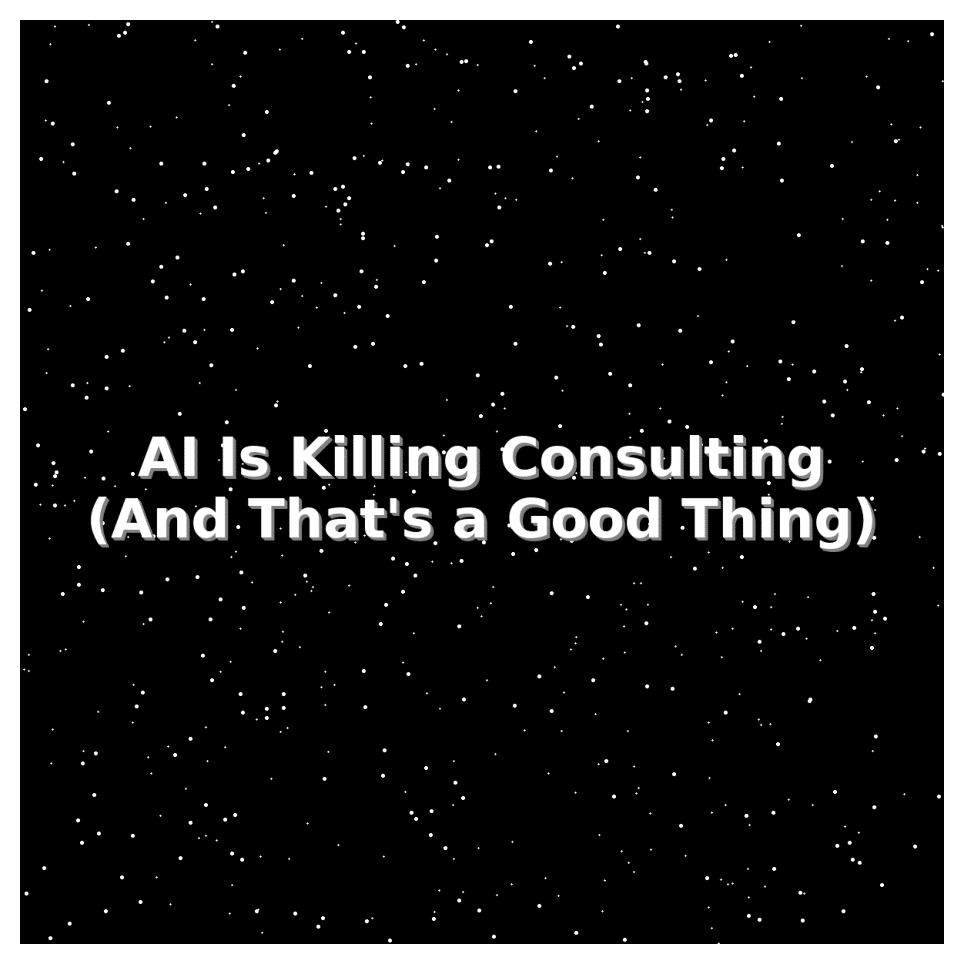For decades, technology consulting has thrived on billable hours, big teams, and armies of consultants capturing meeting notes, documenting processes, and customizing software. But that model is breaking—and AI is leading the charge.
I’ve spent my entire career in consulting. Now, I can say with certainty: AI is disrupting (if not outright killing) the consulting industry as we’ve known it.
And that’s not a bad thing.
Table of Contents
ToggleWhy AI Is Upending Consulting
When most people think about AI, they think about how it applies to their own organization—automating processes, creating efficiencies, or generating insights. But AI isn’t just transforming our clients’ businesses. It’s fundamentally reshaping ours.
Here’s how:
- Automation of grunt work. Documentation, note-taking, process mapping, and first-draft deliverables can now be automated. What once took weeks can now be completed in hours.
- Smaller, leaner teams. You don’t need 50 consultants in suits camped in your office. AI allows projects to move forward with fewer people—meaning less overhead for clients.
- Shift from billable hours to outcomes. Firms can’t rely on armies of junior staff padding utilization rates. Clients want faster value and tangible outcomes. AI makes that expectation realistic.
- Clients take the driver’s seat. Historically, knowledge and documentation were controlled by system integrators. Now, AI shifts that center of gravity back to the client—where it belongs.
What AI Can’t Replace
While AI is powerful, it’s not a silver bullet. The real value of consulting has never been in note-taking or PowerPoint decks. It’s in the human-centric work that technology can’t replicate:
- Change management and adoption
- Training and communication
- Strategic alignment of technology with business goals
- Leadership, trust, and accountability
AI frees consultants to focus on these higher-value activities instead of drowning in administrative work.
The Winners and Losers in Consulting
This shift will separate firms into two categories:
- Losers: Firms that cling to the old pyramid model—armies of junior consultants generating hours of documentation. Their revenue model depends on inefficiency. AI undercuts it.
- Winners: Firms that lean into AI, automate low-value tasks, and focus on delivering strategy, outcomes, and adoption. These firms will be leaner, faster, and more cost-effective—and clients will notice.
At Third Stage, we’ve embraced this reality. Our Mission Control AI tool, powered by our partner Octar, is embedded across client engagements. It ensures accountability, captures institutional knowledge, and accelerates project timelines—all while enabling our consultants to focus on what really matters.
Why Clients Win Most of All
At the end of the day, the real beneficiaries of AI in consulting aren’t the firms—it’s the clients.
- Projects move faster.
- Costs go down.
- Documentation and knowledge don’t disappear when consultants walk out the door.
- Value realization accelerates.
That’s the consulting industry clients have wanted for decades. AI is finally forcing it to happen.
The Future: Not Consulting as Usual
AI won’t kill consulting entirely—but it will kill consulting with only humans. The consulting firms of the future will be hybrids: part human, part AI, fully focused on delivering outcomes.
The question is: will today’s firms embrace disruption and evolve their business models—or will they cling to outdated revenue structures and risk being left behind?
At Third Stage, we’ve made our choice






